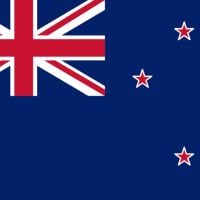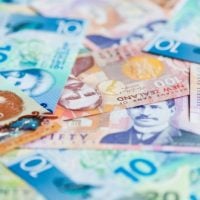Deadline: 11-Aug-23
The United Nations Environment Programme (UNEP) is seeking applications for the Special Programme to support country-driven institutional strengthening at the national level, in the context of an integrated approach to address the financing of the sound management of chemicals and wastes, taking into account the national development strategies, plans and priorities for each country, to increase sustainable public institutional capacity for the sound management of chemicals and wastes throughout their life cycle.
Institutional strengthening under the Special Programme will facilitate and enable the implementation of the Basel, Rotterdam and Stockholm conventions, the Minamata Convention and the Strategic Approach.
For the purposes of the Special Programme, institutional strengthening is defined as enhancing the sustainable institutional capacity of Governments to develop, adopt, monitor and enforce policy, legislation and regulation, as well as to gain access to financial and other resources for effective frameworks for the implementation of the Basel, Rotterdam and Stockholm conventions, the Minamata Convention and the Strategic Approach for the sound management of chemicals and wastes throughout their life cycle.
The expected outcome of the Special Programme is to strengthen the capacities of national institutions to do the following:
- Develop and monitor the implementation of national policies, strategies, programmes and legislation for the sound management of chemicals and waste;
- Promote the adoption, monitoring and enforcement of legislation and regulatory frameworks for the sound management of chemicals and waste;
- Promote the mainstreaming of the sound management of chemicals and waste into national development plans, national budgets, policies, legislation and implementation frameworks at all levels, including addressing gaps and avoiding duplication;
- Work in a multisectoral, effective, efficient, transparent, accountable and sustainable manner in the long term;
- Facilitate multisectoral and multi-stakeholder cooperation and coordination at the national level;
- Promote private sector responsibility, accountability and involvement;
- Promote the effective implementation of the Basel, Rotterdam and Stockholm Conventions, the Minamata Convention and SAICM;
- Promote cooperative and coordinated implementation of the Basel, Rotterdam, and Stockholm Conventions, the Minamata Convention and the SAICM at the national level.
What is a Special Programme project?
- A Special Programme project
- Is a country-driven project that is conceived and implemented by the applicant
- Builds long-term capacity in the relevant ministry or ministries
- Has a sustainable financing mechanism or a plan for ensuring long-term sustainability
- Focuses on multi-sectoral involvement
- Improves chemicals and waste management to mitigate negative impact
- Engages with private sector stakeholders
- Promotes an enabling environment to foster the ratification and implementation of the Basel, Rotterdam and Stockholm Conventions, the Minamata Convention and implementation of SAICM in a cross-cutting approach.
- Coordinates the implementation of policies, strategies and national programmes for the sound management of chemicals and waste o Has a gender mainstreaming component and promotes consideration of gender and UNEP safeguards standards
- Emphasizes gender-disaggregated data collection where relevant
- Creates synergies with other related initiatives in the country in the context of the ongoing reform of the United Nations Development System.
Funding Information
- The Special Programme Trust Fund may provide support from US$ 50,000 to US$ 250,000 per project proposal, including possible administration fees and costs for monitoring and evaluation and financial audit. In certain circumstances, an applicant country may request up to a maximum of US$ 500,000.
- Projects should be fully completed within three years.
What measures and activities can be funded?
- In line with this objective, the activities funded under the Special Programme may encompass:
- Identifying national institutional capacity, weaknesses, gaps and needs, as well as strengthening the institutional capacity to do so, where required;
- Strengthening institutional capacity to plan, develop, undertake, monitor and coordinate the implementation of policies, strategies and national programmes for the sound management of chemicals and wastes;
- Strengthening institutional capacity to improve progress reporting and performance evaluation capabilities;
- Promoting an enabling environment to foster the ratification of the Basel, Rotterdam and Stockholm conventions and the Minamata Convention;
- Enabling the design and operation of institutional structures dedicated to the promotion of the sound management of chemicals and wastes throughout their life cycle;
- Strengthening institutional capacity to promote measures to support all aspects of the sound management of chemicals and wastes, including more specific nationally identified thematic areas covered by the Instruments.
- Furthermore, the terms of reference stipulate that the Special Programme should avoid duplication and proliferation of funding mechanisms and associated administration and should fund activities that fall outside the mandate of the GEF. This is applicable to both individual country projects and regional/multi-country projects. It is therefore strongly advised that you consult with the GEF operational focal point in your country to review your proposed project and ensure that the activities proposed in your project are not within the mandate of the GEF. Additional information is available.
Eligibility Criteria
- Eligible Government can apply to the Special Programme.
- “Governments” specifically refers to the national government ministry or department in charge of the chemicals and waste agenda at the national level. Affiliations of Governments and local governments are not eligible.
- “Support from the Special Programme will be available for developing countries, taking into account the special needs of least developed countries and small island developing States, and for countries with economies in transition, with priority given to those with least capacity”.
- Note that a number of donors have strict policies of funding only applications that meet the eligibility requirements of the Development Assistance Committee (DAC) list of Official Development Assistance (ODA) at the time of application.
- It is strongly encouraged that the Applicant Government only submits one application from the country based on the issue(s) identified as the most important national priorities for possible funding from the Special Programme Trust Fund. In cases where there may be more than one proposal at the national level, the Official Focal Point should coordinate among the proponents to enable the Applicant Government to submit one proposal.
- It is expected that the Government making the application will implement the project. However, the Applicant Government may nominate a delivery organization to implement the project. In such cases, the administrative costs dedicated to the delivery organisation cannot exceed 5 percent.
- Please note that the application form differentiates between the “Applicant Government”, which refers to the Government submitting the application and the “Official Focal Point”, who is the lead contact person on behalf of the Applicant Government, responsible for the application and all interaction with the Secretariat.
- The official focal point is required to endorse the application on behalf of the Government. An endorsement letter from the official focal point should be sent to the Secretariat at the time of submission of the application.
For more information, visit Special Programme.







































